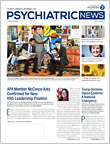A recent development at the interface of psychiatry and technology is that some psychiatrists are using Facebook for case consultation with peers. Case consultation is an important component of medical and psychiatric practice, but it must occur within a framework of professionalism and ethical conduct. Social media, including Facebook, have interesting applications in contemporary medical care and research, and ethics guidelines exist for some of their uses. Obtaining case consultation via Facebook is a new behavior, and as yet it has not been addressed in ethics guidelines.
The APA Commentary on Ethics in Practice states, “Psychiatrists should maintain professional competence through continuing education, supervision, and/or consultation.” It elaborates further, “Psychiatrists should carefully consider the need for consultation with colleagues and/or supervisors, especially when patients are not doing well.”
The APA Principles of Medical Ethics With Annotations Especially Applicable to Psychiatry notes, “The ethical responsibility of maintaining confidentiality holds equally for the consultations in which the patient may not have been present. … In such instances, the physician consultant should alert the consultee to his or her duty of confidentiality.” Thus, it is firmly established that consultation is important for providing competent patient care and that maintaining patient confidentiality in the consultation process is required.
The ethical principle of confidentiality is embedded within the Hippocratic Oath: “What I may see or hear in the course of treatment or even outside of the treatment in regard to the life of men, which on no account one must spread abroad, I will keep to myself holding such things shameful to be spoken about.” If this were taken completely literally, case consultation and supervision would be impossible. APA’s Principles asserts, “Confidentiality is essential to psychiatric treatment” and then provides further guidance regarding disguising the identity of cases used in teaching and writing (Section 4, Articles 3 and 10) and maintaining confidentiality in consultations (Section 4, Article 4). Before embarking on a consultation conversation with a colleague, it is important to consider how the identity of the patient will be protected, especially for patients who reside in small communities or have distinctive stories.
In addition to establishing that consultants will respect patient confidentiality, it is important to ensure that the consultation is obtained in a manner that preserves privacy. Peer supervision should be conducted in an office or other secluded setting, not in a coffee shop or hospital elevator. When grand rounds is a case conference, attendance should be restricted to professionals within the departments involved in the patient’s care.
When consultation is conducted by email or on Facebook, extra care must be taken with privacy. If an email or post were read by an unintended person, would the identity of the patient be apparent? If the patient or members of the patient’s family saw the email or post, would they recognize themselves? Would there be any information they would deem too private to be shared even in consultation?
What are the special concerns about privacy if the consultation occurs on Facebook? It is possible to create a private “chat” conversation between two or more individuals on Facebook, and one could create an invitation-only Facebook page. A case consultation conducted in one of these formats is still vulnerable to breaches of confidentiality. These are some questions to consider: Who is serving as gatekeeper to the private page? Could a psychiatrist unknown to you but known to another member of the group gain admission? Could a person posing as a psychiatrist gain admission? Are you comfortable discussing your patient with someone you don’t know? Would your patient be comfortable with this?
Additional privacy concerns exist for group consultation on Facebook. It is possible to take a screenshot of a Facebook page to share elsewhere, compromising confidentiality. It is also possible for someone to look over the shoulder of a Facebook user or to read a device when its owner steps out of the room. In response to a complaint about an Australian doctor posting comments about an unidentified patient on Facebook, the licensing board cautioned, “Even when patients are not identified, the public may be upset by the content of such postings.” Closer to home, five medical center employees were fired in San Diego County for discussing patients on Facebook even though no patient names, photographs, or other identifying information were included in the posts. It was still considered a violation of patients’ confidentiality. Equally important is that it violated the patients’ dignity and compromised professionalism.
Case consultation is valuable for psychiatrists and can improve patient care. It is important to attend to the forum in which one obtains consultation. Patient discussions in individual supervision, group supervision, or a case conference are well-established, acceptable formats for consultation as long as the patient’s identity is sufficiently disguised and the discussion is conducted in a private setting.
As psychiatrists adopt new technologies, care must be taken to preserve the privacy of the communication so as to guard the patient’s confidentiality and to preserve the dignity of the patient and the profession. ■
APA’s ethics guidelines and related documents can be accessed
here.

